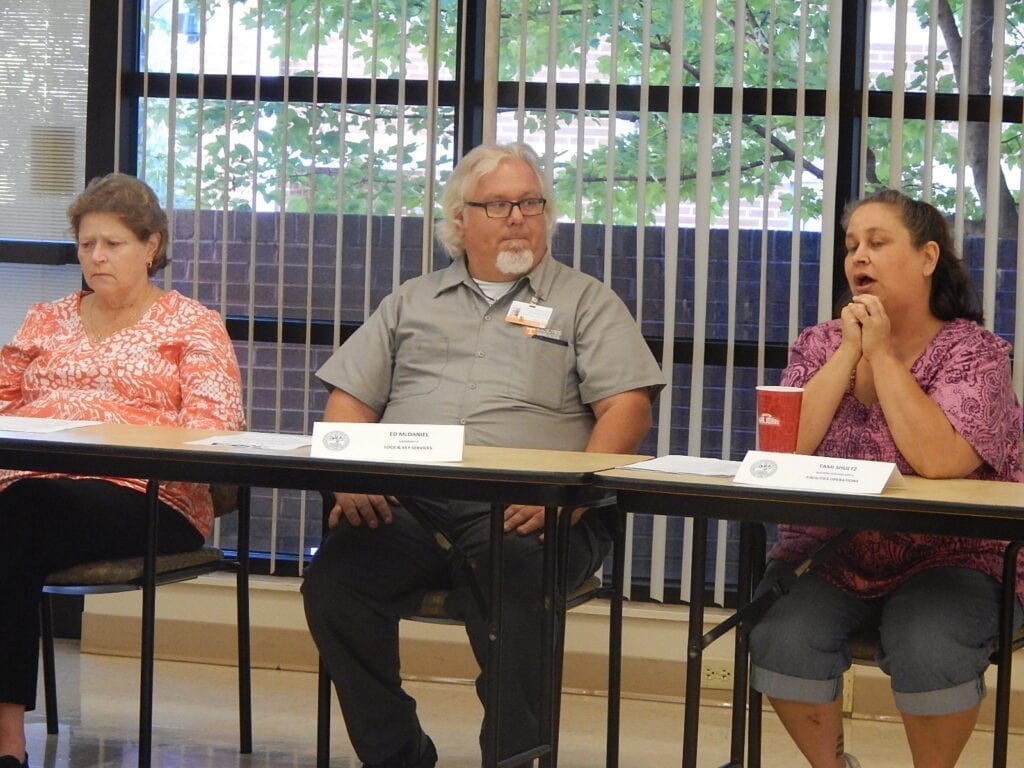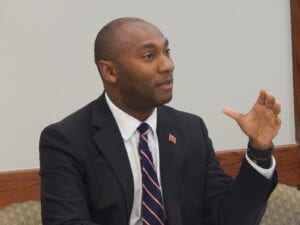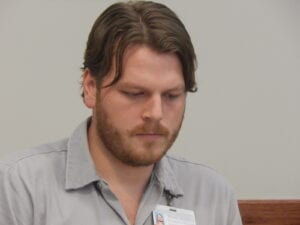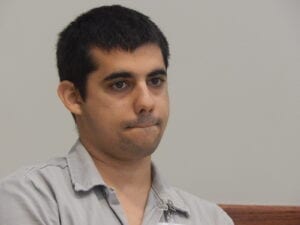Legislators hear worker concerns about job outsourcing
On Tuesday, Oct. 6, legislators joined with campus organizations to hold a round-table discussion about Gov. Haslam’s privatization plans.

[title_box title=”Legislators hear worker concerns about job outsourcing”]
On Tuesday, Oct. 6, legislators joined with campus organizations to hold a round-table discussion about Gov. Haslam’s privatization plans.
Tennessee state representatives Joe Armstrong, John Ray Clemmons and Senate Minority Leader Lee Harris sat on a panel with UT workers Blaine Fortes, Vernon Smith, Robby Lee Huggins, Ed McDaniel, Tami Shultz, Chip Pennoyer and Verna Spencer to discuss how Haslam’s plan to outsource all public facilities management to a private company would affect their lives.
Armstrong expressed that this particular issue affects many Tennesseans, especially those who attend or work on a higher-education campus. He called UT a “vital economic engine,” that would affect the economics of each citizen.
Harris said the panel was more about listening than talking and he really wanted to hear from workers. Harris said too often lawmakers and administration tend to “operate in a bubble.”
“We don’t get out of Nashville and try to find out what’s going on from Tennesseans who who are affected by the decisions we make,” Harris said.

Each worker give a brief anecdote about their experiences while working at UT, what the job means to them and how much they depend on the work they do at the university.
Shultz, who works as an building services aid, explained to the legislators that she is the sole provider for herself and her mother. Shultz said both she and her mother need to buy medication and that insurance for pre-existing conditions is difficult for them to access. She also reminded the panel that UT has tried to outsource once before and that the results were not up to the standards previously set by in-state workers.
“I guess UT don’t learn from their mistakes,” Shultz said.
Fellow building services aid McDaniel echoed Shultz’s statements about needing insurance. He applied to UT after being a roofer in order to receive benefits and insurance that would provide him a safer future. McDaniel wasn’t sure he would be able to go back to roofing if he were to be terminated from his position at UT. McDaniel felt that workers across the state would be in the same predicament if state jobs were outsourced.
“I fear for myself, for the rest of the state,” McDaniel said. “I fear this might help break the future for our state.”
When asked by Harris if there was any “waste” in their division–particularly if there were any workers who should be cut–both McDaniel and Shultz said no, emphasizing that not only were their departments efficient, but it is also close-knit.
“I believe you’re getting the best bang for the buck,” McDaniel said. “We’re well-trained and it’s been shown where our cost is less than what they’re willing to offer. If there’s a problems with other places in the state, let’s have the opportunity to train those people. ”
“We’re not wasting in my department and nobody’s gonna take care of this place like we are,” Shultz added. “To the majority of us, it’s a lot more than just a job. If somebody’s hurt or somebody’s gone, we’re gonna miss that.”
Armstrong interjected with a recount of the outsourcing of the maintenance staff of Legislative Plaza 20 years ago. He stated that once the work was being outsourced, the quality and cleanliness of the buildings drastically decreased. Armstrong said he felt like the state would be losing an aspect if maintenance positions were to be outsourced.
“I totally disagree with the governor,” Armstrong said. “There’s two governors: there’s Bill Haslam the governor and there’s Billy Bob Haslam. This is a Billy Bob move.”
Spencer talked about the condition she found UT in when she moved back to Tennessee after outsourcing took place. She went to work in Hesler Biology Building and said the workers who had been brought in by contractors were surprised at how clean she was able to get the place.
“I’ve been cleaning for 42 years,” Spencer said. “If there’s dirt to be found, I can find it.”
Insurance and benefits are a major concern for Spencer as well. She said she thinks outsourcing would be a big hurt for state workers.
“I’m just pleading for our jobs at this point,” Spencer said.
Smith, who has been working at UT for a year and a half, said the uncertain future of his job and the jobs of his colleagues is his major concern.
“To me it’s the stress, the undecidedness,” Smith said.
When asked by Harris if there was any room for pay cuts in the wages of the employees, Smith said there was not, stating that the economic impact of Haslam’s plan would be between $2 billion and $3 billion.
“Instead of cutting it, why don’t you give them a raise?” Smith asked.

Huggins said he went through unemployment three times before being hired at UT. He had worked for his father’s construction company and watched his father have to lay off between five and six crews of workers when the housing market crashed. After his wife was in a car accident that left her needing 24-hour care and unable to physically handle a full-time job, Huggins has become the sole provider for his family. They had to give up their home because of the cost of care.
Huggins said one thing he noticed while driving the truck during his first year at UT was how dedicated the workers are.
“There’s a lot of heart there,”Huggins said, “You’d hate to feel disposable.”
For Fortes, who came to work at UT for the benefits and the possibility for reduced tuition for his children, taking care of the students and taking pride in his work is a major part of working in plumbing services. He recounted a story about having to break through a cement wall to fix leaks in Hess hours after his shift ended.
“I have to stay,” Fortes said. “It’s my job. I can’t not stay.”

When Clemmons asked if there were too many people in Fortes’s department, Fortes responded that they needed more people.
Pennoyer, also a member of plumbing services, agreed. He has been working at UT for almost two years and commends his department on how hard they work.
“It’s truly amazing how effective and efficient they are,” Pennoyer said.
Pennoyer’s concern also involves the veteran workers and what would happen to them if they were to lose their retiring benefits.
“It’s really hard to think about. It’s upsetting,” Pennoyer said.
Audience members were invited to make comments about the issue of outsourcing and privatization. One audience member, Matt Roach, emphasized how hard UT’s staff work and that cutting them would only hurt the state.
“You cannot extract a profit from that without cutting benefits,” Roach said.
The legislators are continuing to visit campuses in Tennessee to discuss the issue. They plan to be in Chattanooga on Nov. 3.
Featured Image by Courtney Anderson
Edited by Jessica Carr
News editor, Courtney Anderson, has been telling stories for as long as she can remember. From scribbling short stories on the back of pamphlets to excelling in Advanced Placement English courses in high school, Anderson has always been determined to make a career out of writing. Anderson joined TNJN as a freshman and instantly fell in love with online news. She hopes to become an editor for a major online news source one day.

